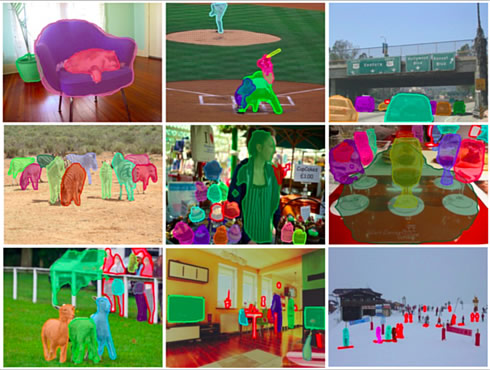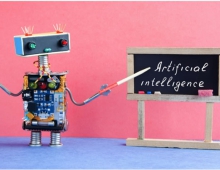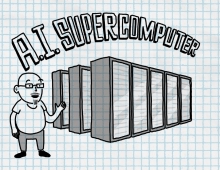
Facebook Reports Progress In Artificial Intelligence Research
Facebook’s AI Research (FAIR) team has made progress in its artificial intelligence research, with latest advancements to include the ability to train computers to identify objects in photos, understand natural language, predict, and plan. Next month FAIR will be presenting a new paper at NIPS, an artificial intelligence conference. In the paper the team details a system that segments, or distinguishes between, objects in a photo. Mike Schroepfer, Chief Technology Officer at Facebook, claims that the new system segments images 30 percent faster, using 10x less training data, than previous industry benchmarks.

Earlier this year, Facebook showed some work on natural language understanding - specifically, a system called Memory Networks (MemNets) that can read and then answer questions about short texts. In this demo of a new system called VQA, or visual Q&A, MemNets are combined with image recognition technology, making it possible for people to ask the machine what’s in a photo.
Unsupervised, or predictive learning, is the ability to understand what will happen in the future by learning from observation. To try to give computers this ability, the FAIR team has developed a system that can "watch" a series of visual tests - in this case, sets of precariously stacked blocks that may or may not fall - and predict the outcome. After a few months’ work, the system can now predict correctly 90 percent of the time, which is better than most humans, according to Schroepfer.
To teach systems how to plan, FAIR has created an AI bot to play the board game Go. After a few months of playing, it’s already on par with the other AI-powered systems that have been published and it’s as good as a very strong human player. Facebook has achieved this by combining the traditional search-based approach - modeling out each possible move as the game progresses - with a pattern-matching system built by the company's computer vision team.
The next step for Facebook would be to give the technology away. The social network is seeking to exchange information with other developers so that it can find new insights that could help improve its own products and services. Facebook is betting that sharing a technology will help everyone benefit faster than going it alone. For artificial intelligence, Facebook’s goal is to nudge other companies in a direction that helps it strategically, Schroepfer said.





















